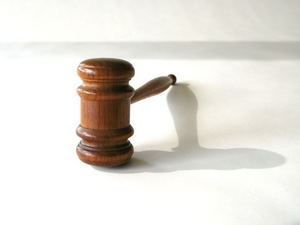- Free Initial Consultation: (954) 761-3641 Tap Here To Call Us
Sanders v. Sears-Page: Court Orders New Car Accident Trial
The majority of car accident lawsuits are settled outside of court, prior to the trial phase.

However, the personal injury lawyer you choose to handle your case should have ample trial experience. Some cases are best resolved at that level, and trial procedures are complex and fast-paced.
Although the actual crash may have been a fairly straightforward occurrence and fault is clear, liability may be less clear when a defendant calls into question the medical history of a plaintiff relative to causation of injuries. One example was seen recently in the Nevada Court of Appeals case of Sanders v. Sears-Page.
In fact, defendant admitted she was at-fault for the crash. She had made a right turn from the left lane and struck plaintiff’s vehicle. Initially, the collision appeared minor and plaintiff did not complain of any trouble or seek medical attention. But as the hours wore on, her neck pain intensified. It worsened over the course of several days, and she sought treatment at a local neck and spine care center. more Eventually, this center – on the advice of a number of medical providers – recommended patient undergo neck surgery, which she did, to alleviate pain. She then filed a personal injury lawsuit against defendant to recover medical expenses.
Defendant conceded fault for the crash, but central to the case was her argument that plaintiff’s purported injuries were not caused by the crash and further the medical bills she sought to have covered were unreasonable.
Both sides had physicians who testified on their behalf in pre-trial depositions and at trial. Physicians for plaintiff argued her injuries were caused by the crash and the treatment was reasonable. Defense, however, argued plaintiff’s injuries were due to a pre-existing degenerative condition. Plaintiff was being treated for back pain for some time prior to the accident. Additionally, defendant doctors testified the medical center that treated plaintiff had overblown the need for surgery, as well as the associated costs.
During voir dire (when the jury is chosen) it was revealed one juror had previously been treated by that medical center. His doctor recommended spinal surgery, but he sought a second opinion and opted to go a less invasive route.
Plaintiff moved to strike juror for cause, while defense argued he should simply be made an alternate. Judge declined, and that juror ultimately became the foreman.
Also complicating matters in the case was that both sides had difficulty obtaining complete medical records from an outside doctor who treated plaintiff for back pain prior to the crash. In fact, it wasn’t until the day before the close of trial the doctor made those records available. Those records underscored defense’s position that plaintiff’s condition was pre-existing.
Plaintiff argued it should not be admitted into evidence so late in the trial. Judge overruled and allowed.
Jury returned verdict for defense.
Plaintiff appealed, arguing trial court erred in several respects – namely, by not striking the aforementioned juror and by allowing last-minute evidence against her into trial, without giving her additional time to formulate a response.
The Nevada Court of Appeals reversed, finding merit in plaintiff’s argument. While defendant has the option to appeal to the state supreme court, it’s probable the case will result in either another trial or an out-of-court settlement agreement in hopes of avoiding a new trial.
Call Fort Lauderdale Injury Attorney Richard Ansara at (954) 761-4011. Serving Broward, Miami-Dade and Palm Beach counties.
Additional Resources: Sanders v. Sears-Page, July 16, 2015, Nevada Court of Appeals More Blog Entries: Ex parte Quality Carriers, Inc. – Tractor Trailer Strikes Disabled Vehicle With Fatal Results, June 23, 2015, Fort Lauderdale Car Accident Attorney Blog













